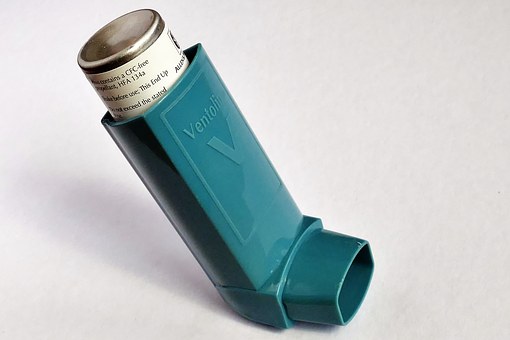Asthma is a chronic and long term disease of the airways. It is a condition when the airways in the lung get inflamed and narrowed, which restricts air supply. The inflammation causes the airways to be exceptionally sensitive to irritations and increases their vulnerability to an allergic reaction. The increased sensitivity will cause a reaction. The muscles in charge of controlling the airways tighten and trigger an overproduction of mucus. Asthma causes periods of chest tightness, coughing wheezing, and shortness of breath.
It affects everyone regardless of age and it often starts during childhood. It is the most chronic disease for children. People who have asthma may experience mild to severe symptoms that can happen every day or rarely. The severe symptom is known as asthma attacks, which happens when the symptoms are at their peak and might begin suddenly.

Asthma is serious. It can even be dangerous and fatal. About 250,000 people around the world die every year because of it. If you have asthma, you need proper treatment to live well. Without the treatment, you might have to visit the emergency room frequently. The exact cause of asthma is unknown, and the cause may vary for each person. Your environment and genetics can contribute to the development of the disease. The primary causes of asthma are:
- Cigarette: Smoking increased the risk of asthma, respiratory infections, and death from asthma. It makes asthma worse by adding breathlessness and coughing. It also increases the risk of infections because of the overproduction of mucus.
- Allergies: there is a strong link between allergies and asthma. Common allergens include animal proteins, dust mites, cockroaches, and fungi.
- Environment: Air pollution inside or outside the house triggers asthma. It often occurs because of mold and fumes from cleaners or paints. Heavy air pollution causes a high recurrence of asthma. Weather changes also stimulate asthma attacks since cold air can lead to constricted airway and extra secretions of mucus.
- Genetics: Asthma can be passed by parents to their child. There is a 25 percent chance that a child whose parent has asthma will develop the disease. If both of the parents have asthma, the risk will be increased by 50 percent.
There is no cure for asthma, but there are treatments and medications that can manage the symptoms. The treatments can prevent asthma attacks and allow you to live your daily life normally. The treatment you will receive depends on your severity and age. Doctors usually adjust the treatment to your response until the symptoms are managed. Most people are treated with long-term daily medicines and inhalers for short-term relief during asthma attacks. If your asthma is severe, your doctor will normally give you oxygen therapy and breathing assistance. Your doctor may also recommend bronchial therapy if other treatments are not working for you. The procedure helps your doctor to see inside the airways, then they will apply heat to the muscles in the airways to make them thinner.
Many people stop physical activity when they are diagnosed with asthma. Truth is, you should keep exercising. Yes, it is a potential trigger, but maintaining an active life is important to make you healthy. You can ask your doctor about medications and the best way to improve your symptoms during physical activities.

